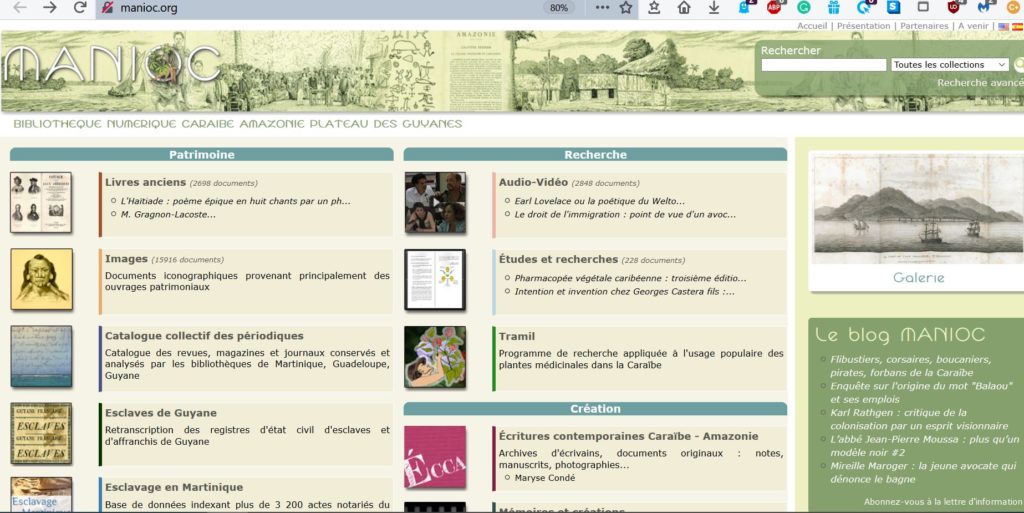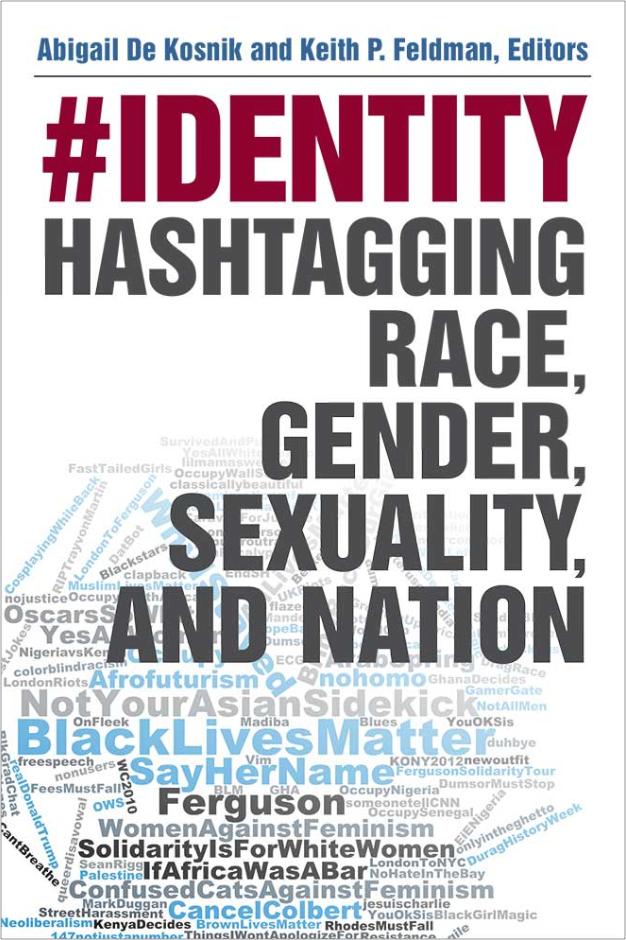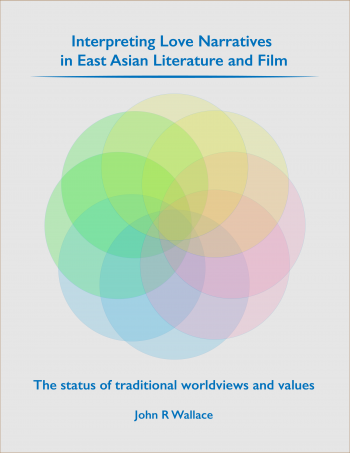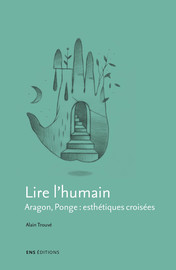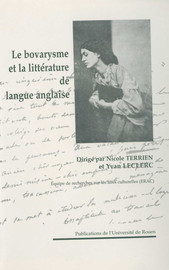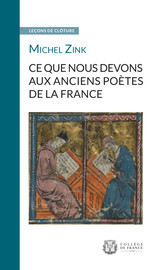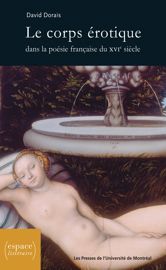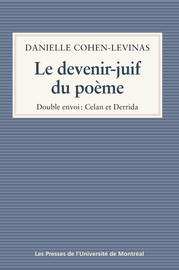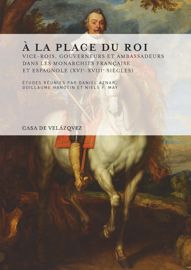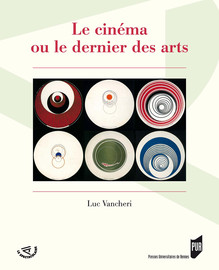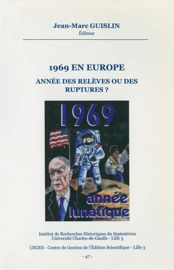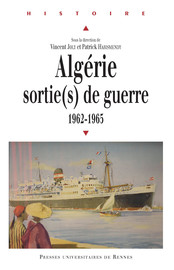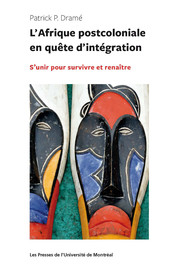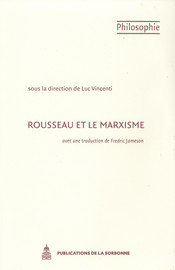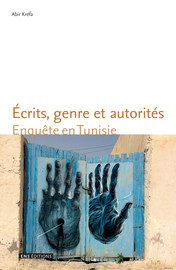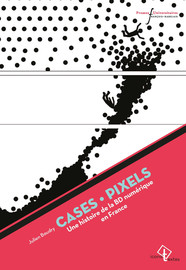Tag: open access
Open Access in Latin American and Caribbean Studies Digital Resources: Episode 2
Here is the second episode of the Open Access Digital Resources. We present you with the digital library of Francophone Caribbean, Amazonia, and Guayanas (Bibliotheque Numerique Caraibe Amazonie Plateau Des Guyanes). The self-description can be translated as, “Manioc (Cassava) is a digital library specializing in the Caribbean, the Amazon, the Guyana Plateau and the regions or centers of interest linked to these territories. The site is an open-access collaborative project between the University of Antilles and the University of Guyana.” This digital library provides access to several key digital collections related to the region.
Open Access Latin American and Caribbean Studies Digital Resources: Episode 1
Open Access Latin American and Caribbean Studies Digital Resources: Episode 1
La Biblioteca va a su casa: Fuentes para la investigación sobre los estudios latinoamericanos.
One of the students asked a reference question: What should I do to access the primary resources while the library remains open virtually during this pandemic? The student’s question served as a stimulus to an idea of these episodes was born. Twice a week, the librarian will provide information on open access to a digital resource in Latin American Studies. In this first episode, we want to introduce you to Open Access Digital Primary Sources that are being indexed by the SALALM (Seminar on the Acquisition of Latin American Library Materials), and these can serve as a starting point for your research. Below is the screenshot of the landing page of the resource. Please click on the icon to get access to the website. The SALALM effort is a collaborative effort, and one can recommend any additional digital resources here.
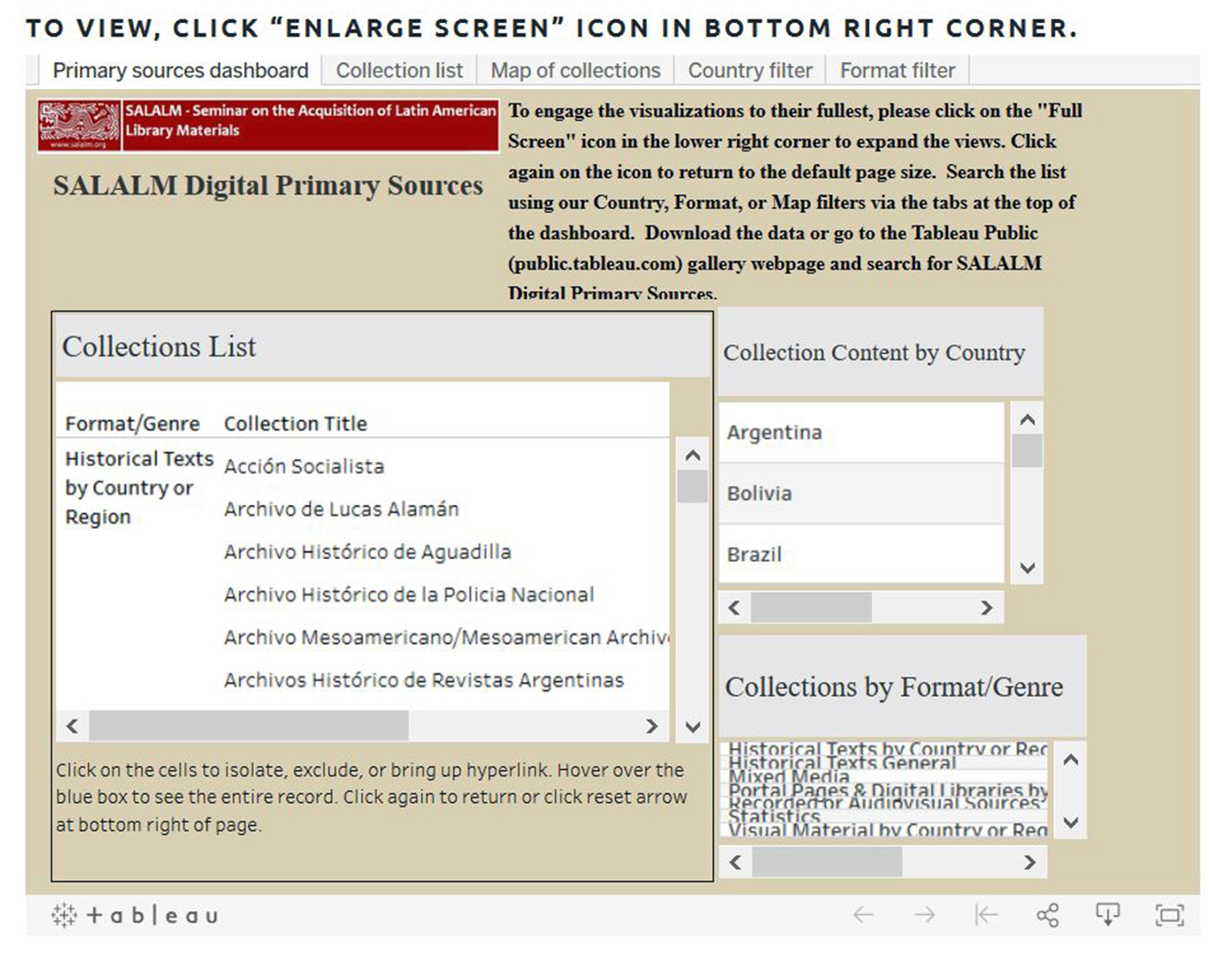
Romance Languages – Online Resources & more
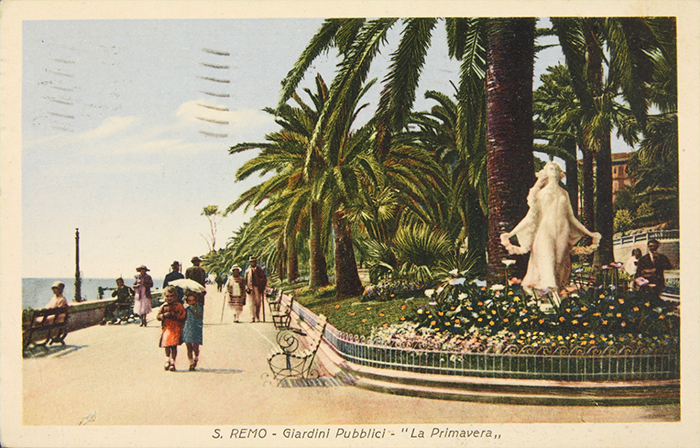
Even though the Library’s buildings have been closed through April 7 due to the coronavirus pandemic, faculty, students and staff can still access a wealth of resources online, and we are ramping up our outreach and remote services. The newly created guide Remote Resources for UC Berkeley Library Users provides an overview of resources available to you:
- Online resources
- Online help 24/7
- Librarian consultations and instruction
- Technology assistance
- Returning and renewing materials (due date for all items due between March 16 and May 31 is now June 1, 2020)
This blog post, which will be updated periodically, aims to highlight online resources for those doing research in the romance languages and literatures within the context of Southern European studies in particular. If you encounter resources of interest not listed please let me know and I’ll add them, especially if they are not included in the directory of library databases or existing library guides for French, Italian and Spanish & Portuguese. See also the e-resources guide for the Caribbean and Latin American Studies.
Book and journal requests are encouraged but the Library is limited to e-formats at this time. And please don’t forget that I remain available for research and reference assistance by email, telephone, chat via Google Hangouts, or Zoom.
Claude Potts
Librarian for Romance Language Collections
Ebooks
Most ebooks in English are acquired through packages with publishers such as Cambridge, JSTOR, Project Muse, ProQuest and are discoverable in OskiCat as well as Start My Search. Here are a few important European ebook platforms that can be explored directly (or individual ebooks encountered through OskiCat):
Cairn ebooks updated 3/26/20
Primarily a journal collection but UCB has has also purchased access to 568 ebooks through Cairn. During the closure, they are providing access to the full catalog of 10,174 ebooks, the Que sais-je? series and also some popular magazines.
Classiques Garnier Numérique
During the COVID-19 crisis, this publisher is generously providing access to digital versions of books we’ve purchased in print, including collections such as Classiques Jaunes, Littérature française, Littératures francophones and more.
Digitalia
Collection of Spanish and Catalan e-books published in Latin America and Spain. To date, the UCB Library has purchased more than 2,700+ titles. To preview the complete list search OskiCat for “Digitalia e-Books UCB access.”
DOAB ![]()
The Directory of Open Access Books is an initiative to increase the discoverability of open access books. Currently, it includes 27,592 academic peer-reviewed books from 377 publishers.
L’Harmathèque
Digital platform for Éditions L’Harmattan which is the largest publisher of French-language ebooks. Search OskiCat for “Harmathèque eBooks” to discover the 1041 titles acquired by the Library.
HathiTrust Emergency Temporary Access Service added 4/3/20 
Current UC Berkeley faculty, staff, and students will be able to take advantage of HathiTrust’s Emergency Temporary Access Service, helping the Library continue to serve its mission even during the COVID-19 pandemic. The service provides view-only access to digital versions of millions of the physical volumes held by libraries across the 10-campus UC system — plus NRLF and SRLF. For more information, read HathiTrust’s guide and FAQ on the Emergency Temporary Access Service.
Humanities E-Book Project (formerly History E-Books Project)
Access to the full text of 5,400 frequently-cited academic books in humanities. (ACLS History E-Books Project – HEB) [1920s – present]
Internet Archive’s National Emergency Library added 3/24/20
A collection of nearly a million and a half digitized books, most still under copyright, in all languages are being made publicly available through June 30, 2020. Up to 10 books at a time can be checked out with the creation of a free account.
OpenEdition Books ![]() updated 3/26/20
updated 3/26/20
A French open access interdisciplinary humanities and social sciences portal with four complementary platforms: OpenEdition Books (ebooks), OpenEdition Journals (scholarly journals), Calenda (academic announcements), and Hypothèses (research blogs). While most of the 9,463 ebooks are available in html, UCB has purchased freemium access to 4,751 ebooks that are now discoverable in OskiCat through the handle “OpenEdition Books.” Purchased titles have been optimized specifically for e-readers, tablets, and smart phones (ePub, PDF, etc.). 700 new titles were recently purchased and freemium access should be turned on by April however during the period of confinement, most books will be available in all formats.
REDIB (Red Iberoamericana de Innovación y Conocimiento Científico) ![]()
A platform for the aggregation of open scientific and academic content in the electronic format produced in the Ibero-American context. Currently 3,199 journals and 852 ebooks.
Torrossa
Casalini Libri’s full text digital platform provides access to 3,161 ebooks, 530 conference proceedings, and 141 journals by major Italian publishers.
Journals
Cairn
The most comprehensive collection of French-language journals in the humanities and social sciences available online. Full text to more than 500 peer-reviewed academic French and Belgian journals, as well as citations for open-access journals, in the humanities and social sciences. [2001 – present]
Dialnet ![]()
Indexes articles, conference papers, book chapters, dissertations and other documents in the social sciences and the humanities published mostly in Spain and to a lesser extent in Latin America. Full text provided to open access content. [2001 – present]
Fabrizio Serra Journals
Collection of more than 50 Italian scholarly journals primarily covering literature, literary criticism, philology, and linguistics. [start dates vary by title; most begin in 2000].
OpenEdition Journals ![]()
Formerly Revues.org is part of OpenEdition, a comprehensive digital publishing infrastructure whose objective is to promote research in the humanities and social sciences. The open access scholarly journal collection includes 534 mostly French but also English, Italian and Spanish titles in the humanities and social sciences. [1999-]
Persée ![]()
Free and open access to French scholarly journals in the sciences, social sciences, and humanities as well as to books, conference proceedings, serial publications, primary sources, etc.
RACO: Revistes Catalanes amb Acces Obert ![]() added 3/24/20
added 3/24/20
A cooperative open access repository of 506 full text scholarly journals.
REDIB (Red Iberoamericana de Innovación y Conocimiento Científico) ![]()
A platform for the aggregation of scientific and academic content in the electronic format produced in the Ibero-American context. Currently 3199 journals and 433 ebooks published by CSIC.
Torrossa
Casalini Libri’s full text digital platform provides access to 3161 ebooks, 530 conference proceedings, and 141 journals by major Italian publishers including Fabrizio Serra Editore.
Digital libraries and other online collections
- Biblioteca Digital Hispánica (BNE)
- Biblioteca Nacional de Portugal (BN)
- Biblioteca de Catalunya
- DART-Europe E-theses Portal
- e-Helvetica (Swiss National Library)
- Center for Research Libraries (CRL)
- Europeana
- Gallica (BnF)
- HathiTrust Digital Library
- Internet Culturale (Biblioteca digitale italiana)
Database Trials
RetroNews added 4/15/20
The UC Berkeley academic community will have access to a 60-day trial of RetroNews. While much of this historical French language news collection is freely available through Gallica, the advanced functionality and added content is only available to subscribers. The collection features over 600 newspapers, journals, magazines and reviews, published between 1631 and 1950: the most important titles of the daily press (Le Petit Parisien, Le Journal, Le Matin) but also periodicals of the political spectrum, regional publications and satirical magazines. Every day, articles, documentary series, video and audio content retrace historic events and their reception by the contemporary press.
Primary Sources: South Asia Open Archives
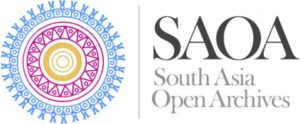 The South Asia Materials Project (SAMP) is an ongoing collaboration between the Center for Research Libraries, US research libraries, and partners from South Asia, that preserves rare and endangered South Asian materials. From that project grew the South Asia Open Archives (SAOA), which includes historical and contemporary sources covering the arts, humanities, and social sciences, in English and South Asian languages, from and about South Asia.
The South Asia Materials Project (SAMP) is an ongoing collaboration between the Center for Research Libraries, US research libraries, and partners from South Asia, that preserves rare and endangered South Asian materials. From that project grew the South Asia Open Archives (SAOA), which includes historical and contemporary sources covering the arts, humanities, and social sciences, in English and South Asian languages, from and about South Asia.
Four SAOA collections (over 350,000 pages) are now freely available on the JSTOR platform:
-
- Caste & Social Structure
- Literature
- Social & Economic History
- Women & Gender
Publish your scholarship like a pro!

We’re more than a month into the fall semester, and if you’re a graduate student or postdoc you’ve probably been thinking about some of the milestones on your horizon, from filing your thesis or dissertation to pitching your first book project or looking for a job.
While we can’t write your dissertation or submit your job application for you, the Library can help in other ways! We are collaborating with GradPro to offer a series of professional development workshops for grad students, postdocs, and other early career scholars to guide you through important decisions and tasks in the research and publishing process, from preparing your dissertation to building a global audience for your work.
- October 22: Copyright and Your Dissertation
- October 23: From Dissertation to Book: Navigating the Publication Process
- October 25: Managing and Maximizing Your Scholarly Impact
These sessions are focused on helping early career researchers develop real-world scholarly publishing skills and apply this expertise to a more open, networked, and interdisciplinary publishing environment.
These workshops are also taking place during Open Access Week 2019, an annual global effort to bring attention to Open Access around the world and highlight how the free, immediate, online availability of scholarship can remove barriers to information, support emerging scholarship, and foster the spread of knowledge and innovation.
Below is the list of next week’s workshop offerings. Join us for one workshop or all three! Each session will take place at the Graduate Professional Development Center, 309 Sproul Hall. Please RSVP at the links below.
Light refreshments will be served at all workshops.
If you have any questions about these workshops, please get in touch with schol-comm@berkeley.edu. And if you can’t make it to a workshop but still need help with your publishing, we are always here for you!
Copyright and Your Dissertation
Workshop | October 22 | 1-2:30 p.m. | 309 Sproul Hall
This workshop will provide you with a practical workflow for navigating copyright questions and legal considerations for your dissertation or thesis. Whether you’re just starting to write or you’re getting ready to file, you can use this workflow to figure out what you can use, what rights you have, and what it means to share your dissertation online.
RSVP (Copyright)
From Dissertation to Book: Navigating the Publication Process
Panel Discussion | October 23 | 3-4:30 p.m. | 309 Sproul Hall
Hear from a panel of experts – an acquisitions editor, a first-time book author, and an author rights expert – about the process of turning your dissertation into a book. You’ll come away from this panel discussion with practical advice about revising your dissertation, writing a book proposal, approaching editors, signing your first contract, and navigating the peer review and publication process.
RSVP (Book)
Managing and Maximizing Your Scholarly Impact
Workshop | October 25 | 1-2:30 p.m. | 309 Sproul Hall
This workshop will provide you with practical strategies and tips for promoting your scholarship, increasing your citations, and monitoring your success. You’ll also learn how to understand metrics, use scholarly networking tools, evaluate journals and publishing options, and take advantage of funding opportunities for Open Access scholarship.
RSVP (Impact)
A Different Flavor of Open Access at UC Berkeley: Opening Books For the World
 Book by Dean Hochman, CC BY 2.0
Book by Dean Hochman, CC BY 2.0
The UC Berkeley community creates a vast array of knowledge and educational content, including thousands of journal articles, books, data sets, and other scholarly projects each year. UC Berkeley authors, like those throughout the University of California campuses, take to heart the university’s public research mission, and aim to make these materials broadly available, not just to researchers and students here, but to anyone around the world. The push for improved access to the research record is what led to the adoption of UC’s two open access policies, which help ensure that journal articles authored by UC Berkeley scholars can be made available to the public for free, without any financial, legal, or technical barriers to readership other than gaining access to the Internet, itself.
Headway with open access journal articles
Within the publishing enterprise, the creation of journal articles is a foundational activity for many faculty, as the UC conducts nearly ten percent of the academic research and development activity in the United States. So, it is not surprising that for authors writing journal articles, there are a variety of ways to make their research open access. For instance, UC’s open access policies guarantee that UC authors can deposit their final, peer-reviewed manuscripts into eScholarship, our institutional repository, where the articles may be read by anyone for free.
Another way the UC has been furthering open access is by negotiating transformative agreements with scholarly journal publishers (like the one with Cambridge University Press). These new arrangements repurpose the funds the library typically spends on subscriptions to instead subsidize publication costs—over timing shifting the bulk of payments to cover publishing rather than access to content, as more and more of that content becomes free to read.
Other local programs, such as the Berkeley Research Impact Initiative (BRII), provide funding to help UC Berkeley authors pay for article processing charges that are sometimes required to publish in fully open access journals. (These up-front fees serve to replace revenue the publisher would have generated through library subscriptions.) In 2018-2019 the Library was able to defray the article processing charges for more than fifty UC Berkeley authors looking to publish in fully open access journals.
Ensuring books don’t get left behind
But for some disciplines, the scientific journal takes a back seat to other types of outputs such as scholarly monographs (a fancy term for books). In areas such as the arts, humanities, and social sciences, communicating knowledge through book form is just as common, and just as relevant, to scholarship.
Significantly, the audience for monographs is not just other faculty: Monographs form a key component of what gets assigned for student reading in university classrooms. Assigning open textbooks instead of commercial offerings can be a big help to students’ bank accounts. Some college textbooks cost over $200, and prices have risen 88% in the last decade. Rice University’s OpenStax has produced dozens of open textbooks, and recently reported that in 2019 alone, nearly 3 million students will save an estimated $233 million by using its open textbooks. The benefits of open access textbooks extend beyond just cost savings for students, though. When books are made available under open licenses that permit broad reuse, instructors may continually build upon, improve, and re-share these educational materials. And authors can communicate with diverse audiences and begin to address inequities in access to knowledge, as translations or localized and contextualized versions can be developed and used.
There’s no discrepancy in the overall quality or effectiveness of open textbooks versus traditional ones. A recent study confirmed previous research showing that students learn just as well from open textbooks as with commercial texts. Likewise, university presses follow the same peer review and editorial processes for the online versions of monographs as they do for the print versions. The only change, and benefit, is that the final text is available for free to read.
So, it is clear that we have an imperative when it comes to open access books: How can we work to open up long-form scholarship to the world to mirror the strides we are making with journal articles?
Publishing books under open access terms is increasingly common, but still somewhat slow to tip the balance relative to book publishing overall. A recent report on the state of open access monographs found that there are around 19,000 open access books in total, even though approximately 86,000 scholarly monographs are published internationally every year. Part of the impediment for publishers is navigating how to recover their investment for the production of open access books, and the concern for libraries rests in how to sustain the publishers that take on these projects. This is because monographs are typically more complex and costly to produce than a journal article. A journal publisher might ask for an article processing charge of between a few hundred to a few thousand dollars to make up for what it would have received in subscription sales. But publishers estimate that producing monographs costs them anywhere between $28,000 and $40,000 in production and marketing costs that they believe they can’t recoup without print sales.
The good news is that some emerging funding models are helping to bridge the cost recovery gap— including work by groups such as the Open Humanities Press, Knowledge Unlatched, and TOME. The University of California Press also supports the creation of open access books, too, through its Luminos initiative. In these and other models, production costs can be outsourced, and there are multiple funding streams (including fairly large subsidies from universities and libraries) that can offset some of the publisher investment. Some university presses are also finding that offering online versions of books actually drive up sales for print-on-demand copies. So, it shows we still have a lot to learn about actual costs and cost recovery with open access books.
UC Berkeley has got your open access book covered
For all of these reasons, the UC Berkeley Library is committed to supporting the creation of open access monographs. In 2017 the Library expanded the BRII program so that Berkeley authors could publish scholarly books open access at zero or substantially reduced costs—making these books free and accessible to readers here at Berkeley, and everywhere.
In just two years, we have now supported more than a dozen authors in the creation of open access books, with everything from copyright guidance to publishing platforms to funding. (You can read more about some of these efforts here.) And through BRII, we have already funded the publication of three UC Berkeley authored or edited open access monographs hitting the digital shelves now (or soon). These books are available for free online under a Creative Commons license (which allows a variety of reuses), and typically offer multiple formats for reading on various mobile devices. Readers that still wish to enjoy the book on paper can do that as usually there’s also a print copy available for purchase, or more affordable print-on-demand options.
We are thrilled to be able to support such cutting-edge and important UC Berkeley scholarship. For instance, #identity: Hashtagging Race, Gender, Sexuality, and Nation, recently published by the University of Michigan Press, was edited by UC Berkeley’s Abigail De Kosnik (Associate Professor in the Department of Theater, Dance, and Performance, and Director of the Berkeley Center for New Media) and Keith Feldman (Associate Professor in the Department of Ethnic Studies). #identity is made available for free in EPUB and PDF formats under the Creative Commons Attribution-NonCommercial (CC BY-NC) license, or for purchase on the University of Michigan Press website.
The book contains essays from scholars affiliated with UC Berkeley’s Color of New Media collective, and explores social media through the lens of social justice movement organizing, the adoption of hashtags in online communications, and the “ways in which Twitter has been used by, for, and against women, people of color, LGBTQ, and Global South communities.” Feldman describes the book as attempting to address foundational questions such as: “Is the field of new media studies presumptively white? What do scholars of color and communities of color think about the field, and what kinds of interventions can be made along the way?”
Even though the idea to publish #identity as an open access book came midway through the publication process, all the authors thought that opening the book for free access and download was a positive move. Keith mentioned that as most of the essay contributors were graduate students or postdocs, it gave them an opportunity to share their work quickly and effectively, and start building their scholarly reputation.
What Is a Family? Answers from Early Modern Japan was published just this week on the UC Press’ Luminos platform. It was authored by Mary Elizabeth Berry (Class of 1944 Professor of History Emerita at UC Berkeley) and Marcia Yonemoto (Professor of History at the University of Colorado Boulder). What Is a Family is made available for free in EPUB, MOBI, and PDF formats under the Creative Commons Attribution-NonCommercial-NoDerivatives (CC BY-NC-ND) license, or for purchase on the Luminos website.
Finally, Archive Feelings: A Theory of Greek Tragedy will be published in 2020 by Ohio State University Press. It was written by Mario Telò, Professor of Classics at UC Berkeley, and will be open access upon publication.
Creating open textbooks with Pressbooks
Another way we’re supporting open access textbooks is through the UC Berkeley Open Book Publishing Platform. The platform runs on PressbooksEDU, an easy-to-use web publishing tool that lets authors design and publish books and open educational resources (OERs) online. Anyone with an active @berkeley.edu email can use this digital publishing software for free. Our office worked with UC Berkeley faculty during the 2017-2018 affordable course content pilot program to explore how instructors could shift from using traditional textbooks to using (or creating) open textbooks. We estimated that switching to open educational resources could save students more than $100 per course.
With grant funding, copyright, and publishing support from our office as part of our OER program, John Wallace, lecturer in the Japanese Department at UC Berkeley, was able to write and recently publish his new book, Interpreting Love Narratives in East Asian Literature and Film. It’s available as a PDF, EPUB, and MOBI formats, and licensed under a Creative Commons Attribution-NonCommercial (CC BY-NC) license.
Interpreting Love Narratives was, for John, an exercise in writing a book in a new way. He noted that many small traditional presses in the language fields are quite narrow in the form, length, and substance of monographs they will consider taking on. However, with the PressbooksEDU publishing format, John was able to find the freedom to write and organize a book to meet his own needs. One benefit to digital production and editing is that since contemporary fields like neuroscience are changing so fast, his book can be easily updated. “It’s liberated me to make statements based on scientific developments that at least I could do something about if the ship turned in a different direction,” said Wallace.
Improving affordability to student textbooks is a major reason John took on writing an open access book. In his Japanese grammar class, the books typically assigned to students cost anywhere from $50 to even $100. “I can’t do it. These students don’t have a lot of money,” he said. “So instead, I’m going to put together my own materials.”
Wallace sees a bright future for open access books. He thinks that open and online is going to be the primary format for how people are publishing things. “I can’t imagine given the costs and the process of the traditional system against the alacrity and agility and distribution power of open…I don’t see how it can’t be the winner in the long run.”
If you’re considering publishing an open access book and are seeking funding and guidance, or are an instructor looking to get involved in creating or adopting an open educational resource, please get in touch! Also, if you’re interested in learning how to use Pressbooks, check out the workshop on October 15. We are here to help bring your work to the widest possible audiences.
Berkeley Research Impact Initiative and the Social Sciences
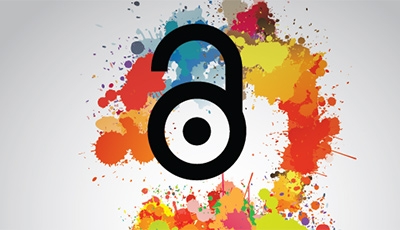 The Berkeley Research Impact Initiative (BRII) aims to foster broad public access to the work of Berkeley scholars by encouraging the Berkeley community to take advantage of open access (OA) publishing opportunities. To accomplish this, it provides funding to Berkeley authors to make their publications free to all readers immediately upon publication.
The Berkeley Research Impact Initiative (BRII) aims to foster broad public access to the work of Berkeley scholars by encouraging the Berkeley community to take advantage of open access (OA) publishing opportunities. To accomplish this, it provides funding to Berkeley authors to make their publications free to all readers immediately upon publication.
Making scholarly work available open access means that there is barrier-free access to research output and that it is not locked behind a paywall. This means there is potential for wider readership and greater impact. However, as publishers have increasingly been charging authors sometimes substantial amounts for “unlocking” their work and making it OA, many authors need financial assistance. With Berkeley’s commitment to making its scholarly outputs OA, the BRII program is the natural response to this situation.
Berkeley authors who have had an article accepted by an open access journal that charges authors an Article Processing Charge (APC) may apply to BRII for reimbursement. Similarly, authors of scholarly books may apply to BRII to for a book subvention. While many of the authors funded are in life and medical sciences or natural resources, a growing number of Berkeley authors in the social sciences have published open access using BRII funding.
If you have questions about the BRII program or open access, talk to your subject librarian.
Below is a very brief list of a few recent BRII-funded articles in the social sciences, listed by the department affiliation of the Berkeley author. Thanks to the assistance of BRII, these articles are free and openly available for any and all users.
Anthropology
Yurchak, Alexei. 2017. “The Canon and the Mushroom: Lenin, Sacredness, and Soviet Collapse.” HAU: Journal of Ethnographic Theory 7 (2): 165–98. https://doi.org/10.14318/hau7.2.021.
Archaeological Research Facility
Lightfoot, Kent G., and Sara L. Gonzalez. 2018. Metini Village: An Archaeological Study of Sustained Colonialism in Northern California.
Institute of Governmental Studies
Geography
Jadhav, Adam, Sharolyn Anderson, Michael J. B. Dyer, and Paul C. Sutton. 2017. “Revisiting Ecosystem Services: Assessment and Valuation as Starting Points for Environmental Politics.” Sustainability 9 (10): 1755. https://doi.org/10.3390/su9101755.
Haas School of Business
Wagner, Zachary, John Bosco Asiimwe, William H. Dow, and David I. Levine. 2019. “The Role of Price and Convenience in Use of Oral Rehydration Salts to Treat Child Diarrhea: A Cluster Randomized Trial in Uganda.” PLOS Medicine 16 (1): e1002734. https://doi.org/10.1371/journal.pmed.1002734.
Linguistics
Bakst, Sarah, and Keith Johnson. 2018. “Modeling the Effect of Palate Shape on the Articulatory-Acoustics Mapping.” The Journal of the Acoustical Society of America 144 (1): EL71–75. https://doi.org/10.1121/1.5048043.
Psychology
Diamond, Allison E., and Aaron J. Fisher. 2017. “Comparative Autonomic Responses to Diagnostic Interviewing between Individuals with GAD, MDD, SAD and Healthy Controls.” Frontiers in Human Neuroscience 10. https://doi.org/10.3389/fnhum.2016.00677.
Marcelle, Enitan T., Laura Nolting, Stephen P. Hinshaw, and Adrian Aguilera. 2019. “Effectiveness of a Multimodal Digital Psychotherapy Platform for Adult Depression: A Naturalistic Feasibility Study.” JMIR MHealth and UHealth 7 (1): e10948. https://doi.org/10.2196/10948.
Zieve, Garret G, Laura P Richardson, Katherine Katzman, Heather Spielvogle, Sandy Whitehouse, and Carolyn A McCarty. 2017. “Adolescents’ Perspectives on Personalized E-Feedback in the Context of Health Risk Behavior Screening for Primary Care: Qualitative Study.” Journal of Medical Internet Research 19 (7): e261. https://doi.org/10.2196/jmir.7474.
School of Information
Maillart, Thomas, Mingyi Zhao, Jens Grossklags, and John Chuang. 2017. “Given Enough Eyeballs, All Bugs Are Shallow? Revisiting Eric Raymond with Bug Bounty Programs.” Journal of Cybersecurity 3 (2): 81–90. https://doi.org/10.1093/cybsec/tyx008.
School of Social Welfare
Aguilera, Adrian, Emma Bruehlman-Senecal, Orianna Demasi, and Patricia Avila. 2017. “Automated Text Messaging as an Adjunct to Cognitive Behavioral Therapy for Depression: A Clinical Trial.” Journal of Medical Internet Research 19 (5): e148. https://doi.org/10.2196/jmir.6914.
Sociology
Boutyline, Andrei. 2017. “Improving the Measurement of Shared Cultural Schemas with Correlational Class Analysis: Theory and Method.” Sociological Science 4 (May): 353–93. https://doi.org/10.15195/v4.a15.
More French ebooks through OpenEdition
The Library has recently added 731 titles mostly in French but also Italian, Spanish, Portuguese and English to its ebook holdings through OpenEdition — an interdisciplinary open access initiative in France. Now, more than 4,700 academic ebooks in the humanities and social sciences are discoverable through the portal or through the Library’s catalogs permitting researchers to benefit from a range of DRM-free formats, some optimized specifically for e-readers, tablets, and smart phones (ePub, PDF, etc.). OpenEdition’s Freemium program makes it possible for UC Berkeley to participate in an acquisitions policy that supports openness and sustainable development of scholarly resources such as these.
Alain Trouvé
coordonné par Nicole Terrien et Yvan Leclerc
Michel Zink
David Dorais
Danielle Cohen-Levinas
Pierre-Louis Fort
Daniel Aznar, Guillaume Hanotin, Niels F. May
Luc Vancheri
Jean-Marc Guislin
Patrick Harismendy et Vincent Joly
Patrick Dramé
Sauveur Pierre Étienne
sous la direction de Luc Vincenti et al.
Abir Kréfa
Julien Baudry
Visit OpenEdition to read even more open access ebooks.
What a semester! What’s up next?

Is it just us, or was fall semester a whirlwind? The Office of Scholarly Communication Services was steeped in a steady flurry of activity, and suddenly it’s December! We wanted to take a moment to highlight what we’ve been up to since August, and give you a preview of what’s ahead for spring.
We did the math on our affordable course content pilot program, which ran for academic year 2017-2018 and Fall 2018. This pilot supported just over 40 courses and 2400 students, and is estimated to have yielded approximately $200,000 in student savings. We’ll be working with campus on next steps for helping students save money. If you have questions about how to make your class more affordable, you can check out our site or e-mail us.
We dug deep into scholarly publishing skills with graduate students and early career researchers during our professional development workshop series. We engaged learners in issues like copyright and their dissertations, moving from dissertation to first book, and managing and maximizing scholarly impact. Publishing often isn’t complete without sharing one’s data, so we helped researchers understand how to navigate research data copyright and licensing issues at #FSCI2018.
We helped instructors and scholars publish open educational resources and digital books with PressbooksEDU on our new open books hub.
On behalf of the UC’s Council of University Librarians, we chaired and hosted the Choosing Pathways to OA working forum. The forum brought together approximately 125 representatives of libraries, consortia, and author communities throughout North America to develop personalized action plans for how we can all transition funds away from subscriptions and toward sustainable open access publishing. We will be reporting on forum outcomes in 2019. In the meantime, one immediate result was the formation of a working group to support scholarly society journal publishers in flipping their journals from closed access to open access. Stay tuned for an announcement in January.
We funded dozens of Open Access publications by UC Berkeley authors through our BRII program.
We developed a novel literacies workflow for text data mining researchers. Text mining allows researchers to use automated techniques to glean trends and information from large volumes of unstructured textual sources. Researchers often perceive legal stumbling blocks to conducting this type of research, since some of the content is protected by copyright or other use restrictions. In Fall 2018, we began training the UC Berkeley community on how to navigate these challenges so that they can confidently undertake this important research. We’ll have a lot more to say about our work on this soon!
Next semester, we’re continuing all of these efforts with a variety of scholarly publishing workshops. We invite you to check out: Copyright & Fair Use for Digital Projects, Text Data Mining & Publishing: Legal Literacies, Copyright for Wikipedia Editing, and more.
We would like to thank Arcadia, a charitable fund of Lisbet Rausing and Peter Baldwin, for their generous support in helping to make the work of the Office of Scholarly Communication Services possible.
Lastly, we’d like to thank all of you for your engagement and support this semester! Please let us know how else we can serve you. In the meantime, we wish you a Happy New Year!
E-mail: schol-comm@berkeley.edu
Twitter: @UCB_scholcomm
Website: lib.berkeley.edu/scholcomm
Practice Makes Published: Developing Skills to Navigate Today’s Publishing Landscape
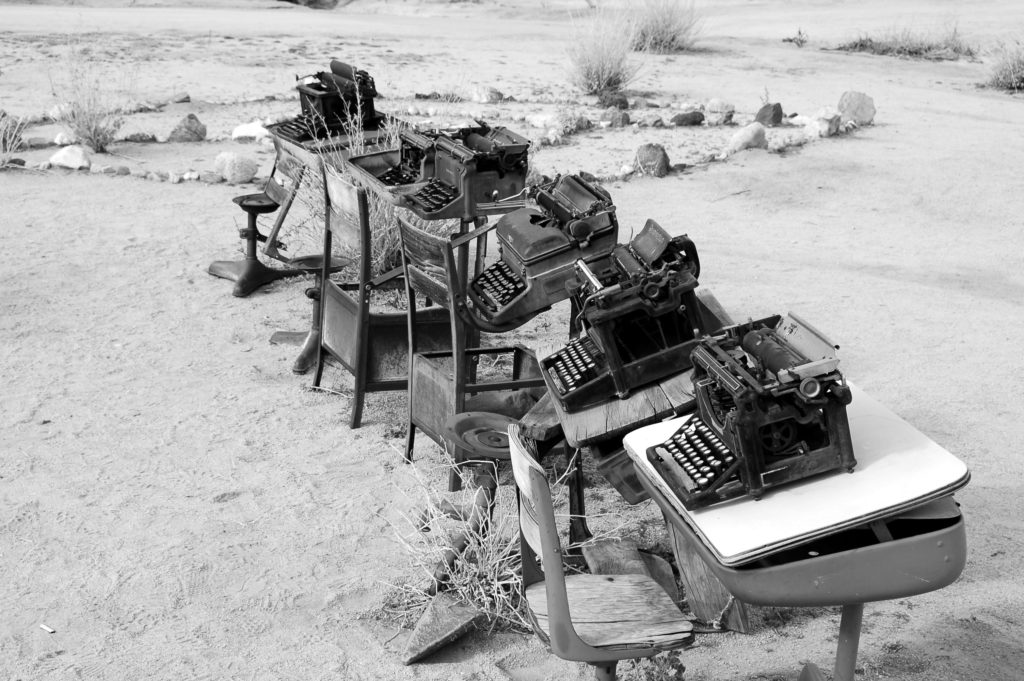
Photo by Matt Artz on Unsplash
We’re more than a month into the fall semester, and if you’re a graduate student or postdoc you’ve probably been thinking about some of the milestones on your horizon, from filing your thesis or dissertation to pitching your first book project or looking for a job.
While we can’t write your dissertation or submit your job application for you, the Library can help in other ways! We are collaborating with GradPro in October to offer a series of professional development workshops for grad students, postdocs, and other early career scholars to guide you through important decisions and tasks in the research and publishing process, from preparing your dissertation to building a global audience for your work.
- October 23: Copyright and Your Dissertation
- October 24: From Dissertation to Book: Navigating the Publication Process
- October 26: Managing and Maximizing Your Scholarly Impact
Similar to a workshop series we offered last year, these sessions are focused on helping early career researchers develop real-world scholarly publishing skills and apply this expertise to a more open, networked, and interdisciplinary publishing environment.
These October workshops are also taking place during Open Access Week 2018, an annual global effort to bring attention to Open Access around the world and highlight how the free, immediate, online availability of scholarship can remove barriers to information, support emerging scholarship, and foster the spread of knowledge and innovation.
Below is the list of next month’s workshop offerings. Join us for one workshop or all three! Each session will take place from 1:00 to 2:30 pm at the Graduate Professional Development Center, 309 Sproul Hall. Please RSVP at the links below.
Light refreshments will be served at all workshops.
If you have any questions about these workshops, please get in touch with schol-comm@berkeley.edu. And if you can’t make it to a workshop but still need help with your publishing, we are always here to help!
Copyright and Your Dissertation
Tuesday, October 23 | 1-2:30 p.m. | 309 Sproul Hall
This workshop will provide you with a practical workflow for navigating copyright questions and legal considerations for your dissertation or thesis. Whether you’re just starting to write or you’re getting ready to file, you can use this workflow to figure out what you can use, what rights you have, and what it means to share your dissertation online.
From Dissertation to Book: Navigating the Publication Process
Wednesday, October 24 | 1-2:30 p.m. | 309 Sproul Hall
Hear from a panel of experts – an acquisitions editor, a first-time author, and an author rights expert – about the process of turning your dissertation into a book. You’ll come away from this panel discussion with practical advice about revising your dissertation, writing a book proposal, approaching editors, signing your first contract, and navigating the peer review and publication process.
Managing and Maximizing Your Scholarly Impact
Friday, October 26 | 1-2:30 p.m. | 309 Sproul Hall
This workshop will provide you with practical strategies and tips for promoting your scholarship, increasing your citations, and monitoring your success. You’ll also learn how to understand metrics, use scholarly networking tools, evaluate journals and publishing options, and take advantage of funding opportunities for Open Access scholarship.
